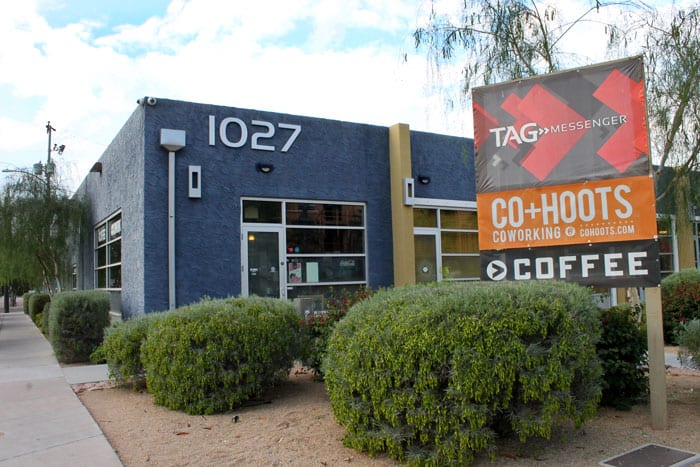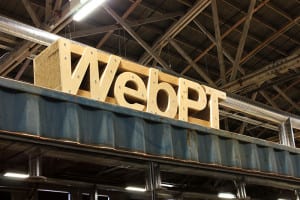- Things to do
- Eat & Drink
- Music
- Pro Sports
- Getting Around
- Shopping & Services
- Hotels
- Arts & Culture
- Tours
- What’s Happening
Browse by category

Nearly everyone seems to agree: Phoenix is on its way to becoming a tech and innovation hub. A key component to creating what some call the “Silicon Desert” is an ecosystem that allows small businesses and solo entrepreneurs to thrive.
Downtown Phoenix has a special advantage: location. It has a denser creative culture, walkability, and array of entertainment options that attract tech employees and inspire innovation.
But it’s also the proliferation of co-working spaces, maker spaces, small business incubators, and events like Phoenix Startup Week that will make Phoenix the thriving tech hub locals are trying so hard to build. These places give the tech and startup community a place to come together to share ideas, collaborate and innovate.
Only 5 years old, the co-working space CO+HOOTS was a pioneer in the startup industry in Downtown Phoenix. They offer freelancers and entrepreneurs a gathering space to share resources and ideas to help them succeed.
In 2014, CO+HOOTS expanded its role in the community by starting a non-profit, CO+HOOTS Foundation. It acts as a bridge between startups and non-profits, by getting small businesses and entrepreneurs to donate their skills and services to nonprofits.
Kristin Romaine, co-founder of CO+HOOTS Foundation, said they’re also specifically focused on exposing youth to the innovation culture through programs like Code Day, which brings students together to build apps or games in 24 hours.
Events like Code Day are part of a greater vision. Leaders in the Phoenix tech movement want to ensure the city has a large enough talent pool to support tech-based companies.
“We need to invest in the youth so that they can be the future leaders and innovators,” Romaine said. “When those students are coming out of (school), you’re going to see a huge surge in tech and innovation, because they (already) have the knowledge base.”
And while downtown may be a hub for “solo-preneurs” and freelancers, she said larger companies are locating in the outskirts and may soon realize that was a mistake.
“Your larger corporate (companies) aren’t downtown and that’s unfortunate,” she said. “A lot of those corporations are going to realize that their employees want an urban feel.”
A large part of building a tech hub is making sure Phoenix has enough talented employees to support it. That often means attracting and retaining millennials who look for a strong job market, the ability to live close to work, and walkability and bikability, according to Phoenix Mayor Greg Stanton.
He said downtown is in the early stages of becoming a major tech hub. However, companies “have to be convinced that we have the entrepreneurial ecosystem to support them.”

Brad Jannenga, president of the downtown-based software company WebPT, said there’s a larger discussion happening now on how to create a better environment for these tech companies to thrive.
WebPT is considered one of the fastest-growing companies in the nation. They’ve expanded so fast in the past 7 years, they’ve had to move three times to keep up with their growth. They’ll be moving again soon, and they have no plans to leave downtown.
Later this year, WebPT and another tech company, which has yet to be announced, will move into a 124,000-square-foot warehouse just across from their current location. They’ll breath new life into an old building — complete with an indoor amphitheater that’s open to the community and a bar and restaurant, Jannenga said.
He said that downtown fit the culture of WebPT better than anywhere else in the Valley. Plus, Phoenix’s low-cost of living, amenities and growing tech culture make it a great place to be.
Some may be critical of Phoenix, though, arguing that it will never be Silicon Valley. But Phoenix isn’t trying to be San Francisco.
Both Romaine and Jannenga said that unlike other cities, Phoenix is focused on encouraging a tech and startup community rooted in collaboration, not pure competition.
The more companies, co-working spaces, incubators translates into more creative ideas and opportunities for success. Both used the phrase, “A rising tide lifts all boats.”